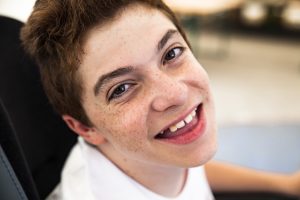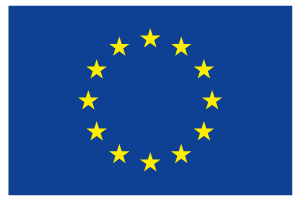 The VISION-DMD project aims to advance and accelerate the clinical development of the orphan drug vamorolone (also known as VBP15) for the treatment of Duchenne Muscular Dystrophy (DMD) through a series of Phase 2 clinical trials being conducted in Europe, the US, Canada, Israel and Australia, leading to drug registration. Availability of vamorolone may deliver a significant advance in the standard of care for all patients with DMD regardless of mutation.
The VISION-DMD project aims to advance and accelerate the clinical development of the orphan drug vamorolone (also known as VBP15) for the treatment of Duchenne Muscular Dystrophy (DMD) through a series of Phase 2 clinical trials being conducted in Europe, the US, Canada, Israel and Australia, leading to drug registration. Availability of vamorolone may deliver a significant advance in the standard of care for all patients with DMD regardless of mutation.
DMD is a progressive and severe, rare genetic disease affecting approximately 1 in 3,500 to 5,000 male births. The natural history of the disease is devastating: untreated, boys become progressively weaker during childhood, losing independent ambulation at an average age of 9 years and death occurs by early adulthood due to cardio-respiratory failure. The disease remains incurable, though long term use of corticosteroids (CS), are widely, but not universally accepted as standard of care. In February 2017, Emflaza (Deflazacort) became the first steroid treatment for DMD, to be approved by the Food and Drug Administration (FDA) in the US. In other countries CS are used off label. Concerns about the severe side effects of all CS may greatly restrict their prescription.
Vamorolone is an innovative first generation dissociative steroid-like drug specifically designed to retain or improve the benefits of CS treatment in DMD whilst aiming to reduce side effects that currently restrict their use.
VISION-DMD is a patient group and academic researcher driven project, with funding for drug development being focused on innovative venture philanthropy through patient group funding and public investment. The project hopes to be a model for affordable rare disease drug development.
The project will also provide key research on innovative exploratory biomarkers and undertake novel MRI techniques for to assess feasibility and clinical relevance.
The project consortium brings together leading international teams in the DMD field including Newcastle University’s John Walton Muscular Dystrophy Research Centre in the UK, the Cooperative International Neuromuscular Research Group (CINRG) based in the US and the European Research Infrastructure Consortia (ECRIN) based in France. The involvement of United Parent Projects Muscular Dystrophy (UPPMD) based in The Netherlands, will ensure DMD patient groups have input into the project. Reveragen Biopharma (UK), Ceratium Ltd (UK) and University Hospital Motol (Czech) complete the project consortium.
